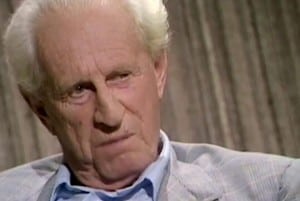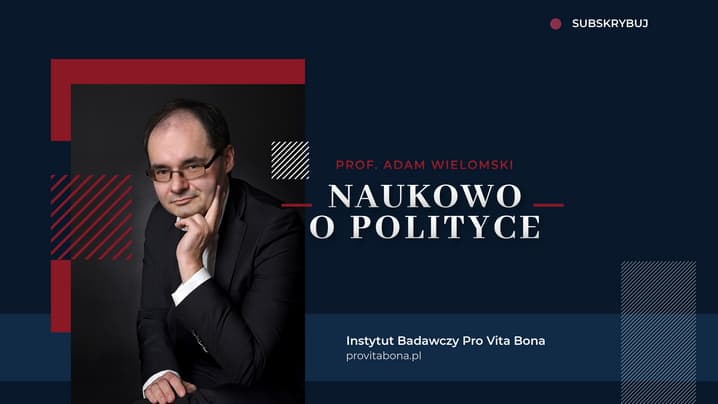Mark Wegierski speculates what Herbert Marcuse would say about the famous dystopia.
The thought-experiment is a recognized form of obtaining certain insights, even in the strictest hard sciences. Aldous Huxley, who passed away fifty-five years ago, on November 22, 1963, would have probably appreciated laying out a hypothetical situation like the one below.
Let us say that Herbert Marcuse, the Frankfurt School theorist, often considered as one of the intellectual progenitors of the Sixties’ revolutions, were re-awakened several hundred years hence, in the world of Our Ford’s „Brave New World”. What sort of critique would he make of that society and what would this say about Marcuse’s ideas?
Marcuse’s critique of Brave New World would presumably focus on the „masked nature” of the society. What appears as a happy, free-loving society is in fact the product of continuous and thoroughgoing genetic engineering, which imposes class distinctions and barriers from the moment of (artificial) conception. The hierarchy of Brave New World is more rigid than that of any formerly existing society, as it is utterly predetermined. There is no rising even from the Beta class to the Alpha class. Marcuse’s critique of BNW would probably be that it is „not genuine” — it is built on bio-engineering of humans and complete „state” control of human reproduction. It is a society where everyone is absorbed in an all-permeating „false consciousness”. Thus, the society of BNW is not really natural, and does not really allow individuals freedom of choice. Inequality is endemic and completely ingrained into the society. The fact that the society is ultimately based on total genetic determinism should totally illegitimate it, as far as Marcuse is concerned.
Yet, on the other hand, Marcuse would probably approve of many of the features of BNW, if considered apart from the genetic caste system. It is a world which has done away with hunger, poverty, disease, and the fear of natural or violent death. Individuals are allowed „the free play of their sexuality” at all times of their lives, and are uninhibited in any way. The idea of the father, that strict, patriarchal oppressor, has gone away, as well as the idea of the mother, which so unnaturally (according to some modern sexual theorists) oppresses women. Without the father, none of the evils of premodern civilization are present — war, aggression, and violent conflict have all but disappeared. The image of the all-powerful father has indeed often been identified with patriarchal, authoritarian systems of oppression — the very picture of most premodern societies. The idea of the family is also gone — and it is often believed by thinkers like Marcuse that the tightly-knit, authoritarian family is the very model of an authoritarian state — with downward flow of authority and no right to ask questions. The idea of „possessiveness” has also been extirpated in BNW, „everybody belongs to everyone else”, which would seem to be the natural extension of the maxim of equality. BNW therefore appears to be the fulfillment of Marcuse’s sexual utopia.
This somewhat sardonic juxtaposition of Marcuse’s reactions to BNW is deliberate. Marcuse would probably not understand how a society which had all the „right” ideas about sexuality would not also be an equality-based and non-hierarchical society.
The first thing this points up is the shallowness of basing one’s views of how society should be constructed exclusively on the mode of the sexual. There is, in fact, no contradiction between the sexual freedom of BNW and its hierarchical structure. In fact, the two can be seen as mutually supportive of each other. There is nothing in Marcuse’s theory which could account for the existence (or the possibility of existence) of such a society.
Secondly, one would like to ask Marcuse about his definition of „hierarchy”. Clearly, it is one that makes no distinctions between „hierarchies” of different sorts — „hierarchy”, which can be seen as the opposite of „equality”, is inherently „bad”, no matter what ends it chooses for itself. In fact, the question of ends does not arise — „hierarchy”, in whatever form, is „bad”; its opposite, „equality” is good. Yet the idea of „hierarchy” must indeed have some implicit valuative connotations attached to it in the mind of Marcuse — fascist or fascistic impulses towards domination, etc. So, when a „hierarchy” promotes the ends which Marcuse promotes, how is he to criticize this „hierarchy”? He cannot criticize it for the ends it promotes. So he can only criticize it for its means.
Paradoxically, John the Savage, in the course of his conversations with the World-Controller Mustapha Mond, provides one answer to this problem. In the so-called Cyprus experiment described in the book, a society of Alpha Double Pluses fights a savage civil war. The reason given for this is that no Alpha Double Plus could stand doing Epsilon Semi-Moron work. Thus, it may be deduced that Huxley’s point is that, if everyone were equally, outstandingly, intelligent, beautiful, and so forth, society probably could not exist. Interestingly enough, though our own society does not resort to bio-engineering humans, people are born with very different abilities and aptitudes. It could be argued that, to put it sharply, inequality is thus present in human nature itself, and is an indelible part of human nature. BNW, in regard to its genetic caste system, can therefore be seen to be creating un-naturally an extreme form of the hierarchies and stratifications that are normally present in any case, in any human society.
The rejection of Brave New World because of its hierarchical nature is thus very theoretically shallow. Marcuse must look to what effects the society has on individuals apart from this — in what aspects, for example, does the society of BNW differ from that, say, of Victorian England? Can he say, for example, that the society of BNW is ignoble?
Another major point is that BNW cannot be criticized for breeding poverty, disease, racism, hunger, and so forth. If everyone is healthy, happy, well-fed, and so forth, what possible critique can a Marxist or capitalist material determinist make of the society? And if there is sexual liberation in the broadest sense of the word, what critique can a Freudian Left thinker make of it? One might then see the seeming contrast between what might be called the „ideology” or ruling-principle of Brave New World (endless satisfaction of all appetites), and its hierarchical nature — which it could be argued are not really all that contradictory. As the Director of the Central Hatchery says, it is the foremost aim to be „adults at work, infants at play”.
If this insight could somehow be brought down to the currently-existing world, it can be seen that there is no contradiction between functionalism at work and hedonism at home. Some of the more typical current-day urban classes (for whom the term „bobos” — bourgeois bohemians — has been coined) who are sharp stockbrokers or business-people by day, hedonists at night, are the best example of this. Sexual pleasure up to the limits of health and hygiene might well be the slogan of contemporary North American society.
Without some frankly non-materialist notions of the importance of „the real human soul” — which can be used to criticize various ignoble aspects of BNW, including the artificiality and extremity of its genetic caste-system — and of the importance of rootedness in family life, particular culture, and religion as they have been historically understood — it would be rather difficult to decisively criticize Brave New World.
The inability to incisively criticize Aldous Huxley’s Brave New World society from a Marcusean perspective might be seen as troubling to those who would like to put the locus of resistance to late modernity and the current commodity-consumption culture in Marcuse and similar thinkers.



